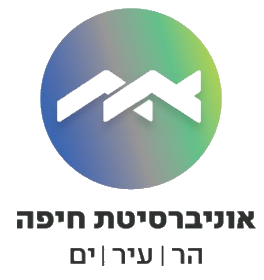Access to Knowledge in Higher Education


Launched in 2009, this project aims to facilitate the fair use of copyrighted materials for teaching and research in institutions of higher education.
The new Israeli Copyright Act of 2007 includes several exception clauses relating to learning and research in educational institutions and public libraries.
A major part of the legal reform established by this Act is the introduction of fair use. Fair use defines a legal standard: a set of considerations to be interpreted by the court and applied, retroactively, to any given set of circumstances on a case-by-case basis. To be considered fair, the use must be for purposes such as private study, research, criticism, review, journalistic reporting, quotation, or instruction and examination by an educational institution.
The courts are further required to determine the fairness of each use by applying, at minimum, the factors listed in Section 19(b):
The purpose and character of the use;
The nature of the copyrighted work used;
The scope of the use in relation to the work as a whole;
The impact of the use on the value of the work and the work’s potential market
Needless to say, this legal regime creates a high degree of uncertainty regarding permissible uses. This uncertainty compromises the ability of users, including educational institutions, to use materials which are necessary for research and teaching.
To address this uncertainty and its chilling effect on educational use, we formed a coalition of higher education institutions in Israel and negotiated a shared understanding of fair use Long the partnering institutions.
The output was a Code of Fair Use Best Practices for the use of copyrighted materials in Higher Education Institutions. This initiative is the outcome of a collaboration between the Law and Technology Clinic of the University of Haifa, the Faculty of Law, and the IP Clinic of the College of Management Academic Studies School of Law.
An article describing the project is available at: http://ssrn.com/abstract=1648408
Documents:
Settlement agreement [Translated from Hebrew by Daniel Isaacs http://www.danny-isaacs.co.il/about-us]
UPDATE November 30, 2013:
On November 27, 2013 the Jerusalem District Court has approved a settlement agreement (Translated from Hebrew by Daniel Isaacs http://www.danny-isaacs.co.il/about-us) between the Hebrew University and two publishers, the Bialik Institute Publications, and Schocken Books, in a lawsuit brought against Hebrew University regarding electronic reserve (eReserve) and academic coursepacks.
The parties agreed that the university has a right to include digital excerpts from books and full articles in eReserve and coursepacks, without having to seek permission or pay. Access would be limited to students enrolled in the course for the duration of the course and exam period only. Access will also be available to the academic staff and to the relevant administrative staff. The parties agreed that the scope of permissible use under Fair Use would be a full article or 20% of a book.
The settlement basically reflects the principles of the Code of Fair Use Best Practices developed by the Coalition of Higher Education Institutions in Israel, and implemented by the partnering institutions.
Read more:
http://arielkatz.org/archives/3042
http://blogs.library.duke.edu/scholcomm/2013/12/02/fair-use-georgia-state-and-the-rest-of-the-world/
https://www.library.unt.edu/

